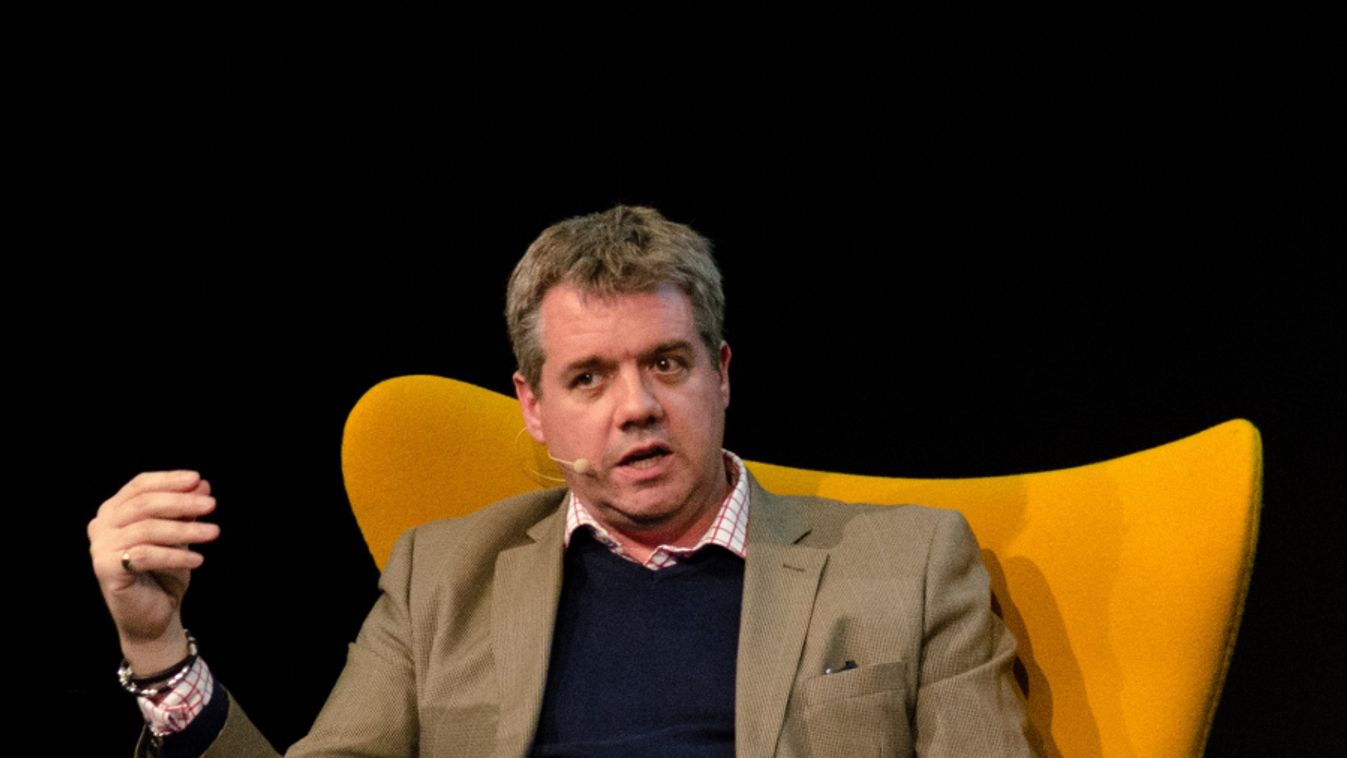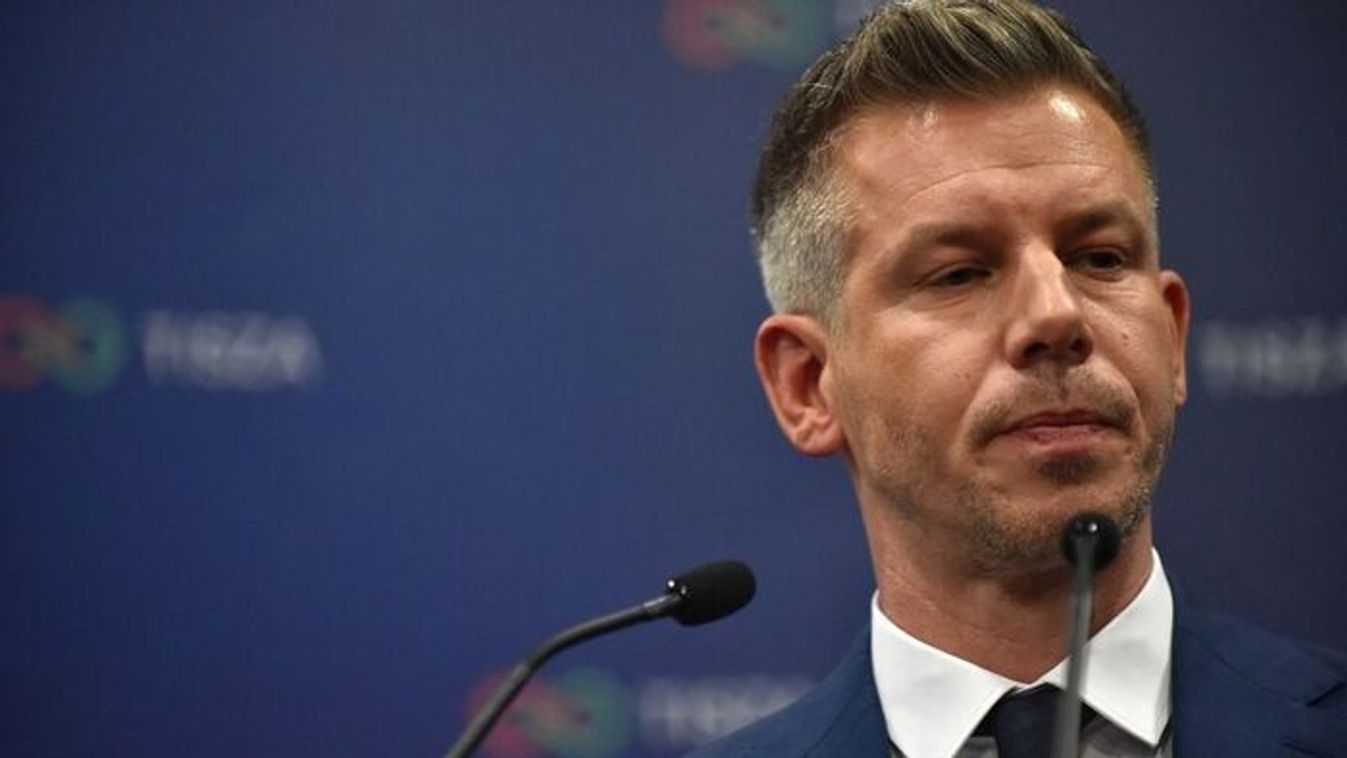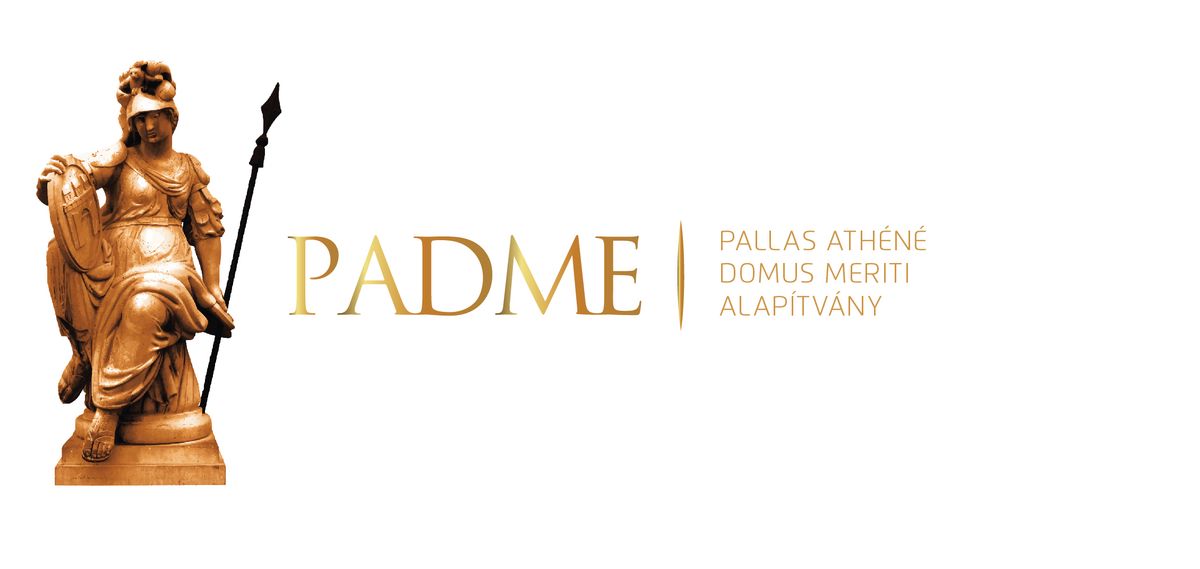Kellemetlen: elhangzott az eddigi legfontosabb mondat Magyar Péter rejtélyes videójáról

Bár a drogos bulibotrány nagyon zavaros, az biztos: Magyar Péter zsarolható – mutatott rá az elemző.

Facing such profound challenges as the EU has done in the last decade or so has exposed the fundamental weakness of the Union; that many of its member states default to national solutions to the challenges they face, and have no patience for ex-cathedra instructions from a distant and aloof Brussels – Roger Moorhouse, British historian pointed out.

Roger MOORHOUSE (1968) British historian and writer. He is a specialist in modern German and Polish history. He published many book and is a regular public speaker. He has written for, among others, The Times, The Independent on Sunday, and the Financial Times.
Let me start our conversation with a quite unusual question. When you look at Europe, how many histories does it tell you?
An infinite number. National histories, regional histories, micro-histories, social histories, diplomatic histories… the list goes on. Everything has a history, from a single object to a planet.

Even though the European integration turned 70 this year, it seems their success story has become quite questionable. The sad reality is that Europe has been in decline in terms of their reproduction rate, defense spending as well as their weight in the global economy for the past 30 years. What did in your view lead to this decline over the decades and how would you rate the leadership of the European Union?
The decline is certainly regrettable, especially for those of us – like me – who were so filled with hope and expectation in the 1990s, when the Cold War had ended and it appeared for the first time in many decades that Europe’s scars could begin to heal. The idea of the “End of History” has been much exaggerated – and since disavowed, of course – but it was a time of tremendous optimism. Looked at from the perspective of a generation on, however, it appears that decline is to some extent the natural side effect of our much-vaunted progress, of our generous, free, egalitarian, liberal society. This, perhaps, is a conundrum for the current and next crop of European politicians; how to square the circle of providing all the benefits that a modern Western society demands whilst maintaining the ability to compete in the global market, often with rivals who offer no such benefits to their own populations.
As regards the leadership of the European Union, I think the decision to expand membership eastward in the 1990s was hugely important and beneficial – not least in giving the Baltic States and Poland the sense of community and solidarity that they have so long craved – but
I am less impressed by the constant drive for deeper integration and ever-growing competence.
Of course, this is an essential part of the Union’s raison d’etre, but it is one that will certainly prove divisive going forward.
In fact, a long series of crises have affected the continent for the last decade: beginning with the financial crises, then the migration crises along with the proliferation of terrorist attacks, and now the devastation of this pandemic with its terrible health and economic consequences. It is quite interesting to see that the crises management of the Central European countries were quite different from their Western counterparts. Even though the Central European countries’ responses to each of these crises turned out to be a better fit, there is a lack of understanding between the West and the “newcomers” of the integration. Moreover, the West try to discipline them along ideological lines. How do you see the different approach and conflict between the West and the East? How do you see the “cracks” in the European Union?
Yes, it is a major problem for the EU. Many of those former accession countries of Central Europe are jealously protective of their sovereignty – understandably, as they were denied it for long under Soviet domination – and now they do not react well to being told what to do by an uber-liberal West, whose diktats often exhibit a barely-disguised Orientalism and assumed moral superiority. This will be one of the major faultlines in the EU going forward, I suspect, alongside the economic faultline between the north and the economically stagnant Mediterranean south, much of which has scarcely recovered from the 2008 financial crisis and is now hamstrung by the migrant crisis and the Euro.
In these circumstances, I find it hard to believe that Brexit will be the last defection from the Union. Facing such profound challenges as the EU has done in the last decade or so has exposed the fundamental weakness of the Union;
that many of its member states default to national solutions to the challenges they face, and have no patience for ex-cathedra instructions from a distant and aloof Brussels.
Also, as British politics has shown for much of the last 20 years, it is too easy for national politicians and governments to deflect criticism of themselves by blaming their difficulties on “European meddling”.
It all exposes what I consider to be the major problem with the union, which is that there is still no sense of a European demos; a European identity which supersedes the various nations of the Union and is able to unite Greeks, Danes and Irishmen into one mutually-sympathetic whole. It’s very modish, of course, to rail against the shortcomings and iniquities of the nation state, but it has been the natural state of affairs in human political arrangements for at least the last 200 years. And it is, in my opinion, far from a spent force, predicated as it is on shared language, shared culture, shared traditions and, crucially, shared sympathies – to put it crudely, the idea that Londoners do not generally baulk at their taxes being spent to the benefit of Glaswegians, for instance.
If the EU really is to take on all the features of a state – extending to areas like defence, fiscal policy and so on – then it has to supersede all that: dissolve, downgrade and diminish national sentiment, while at the same time fostering transnational sympathies. This will be an extremely difficult task. It is easy to criticize national sentiment as backward and recidivist, but putting something larger in its place is much more complex. I’m not sure it is even a realistic proposition. As the financial crisis showed, when things get difficult, people tend to default more to their national sympathies, not less. And, even without the centripetal effects of crisis, it is hard to imagine Londoners (or Berliners) being terribly happy with their taxes being spent to the benefit of Athenians or Neapolitans. Yet, if the EU is to be what its advocates want it to be, then surely it has to address this conundrum. A European demos may indeed be the future, but it is not here yet.
As a result of Brexit, the EU lost one of its strategically important Member States, the second largest economic power in Europe. Brexit will have its costs on both sides. How in your view will Brexit influence the European integration?
Brexit will certainly be a challenge for both the UK and the EU, but I think it will almost certainly speed European integration, as the UK was always one of the members that was most resistant to that concept. With the UK removed, that drive for “ever closer union” will have one less obstacle and will most likely accelerate. Of course, there might be other members who – spurred by the divisions and sentiments I just mentioned – will take Britain’s role as the doubter and act as a brake on the ambitions of the federalists, but I think the drive towards integration will be too great to halt. All of which, of course, will deepen the existing divisions and faultlines, and maybe spur the demand for future defections. The EU clearly feels that it cannot stand still in its integration, but it has to acknowledge that not all member states will want to move at the same speed, or perhaps integrate further at all. If the Union is to continue to prosper in the 21st century it has to find a way of reconciling those differing positions. On one level, I’m sure, the federalists see Brexit as a victory, the removal of a perennially recalcitrant member, but they would perhaps be wiser to see it as a warning.
Since the UK has always been a powerful voice against the idea of the “ever closer union” and sympathetic towards the concept of the “nations of Europe”, the balance of power inside the EU will certainly shift. Do you think that other Member States can, will step in the shoes of the UK, and will continue to represent her European idea?
There are a few I suspect who see the EU more as the UK does – primarily as a trading block of nations rather than a proto-state – but I doubt they will be able to slow the drive to integration significantly. One must understand that – whatever reservations one might have about integration and the demise of the nation state and so on – the EU makes very good sense when viewed from the continental perspective. Its easier for those with cross-border commutes, friendships and supply chains to see the appeal of open frontiers and the single market, and in that sense the English Channel has a lot to answer for – as a natural immutable barrier, as much in a mental sense as in a physical one.
How in your view will Brexit impact the EU – US relations?
Inevitably, Britain will be obliged, post-Brexit, to draw closer to the US, politically, economically and culturally. This too, will bring challenges. Britain already chides itself for being the “51st State” or “America’s poodle”, and a closer relationship will not sit well with many, not least as it will accelerate the acculturation to all things American. But that, however, will be the price of Brexit.
All three major EU institutions recently gave their blessings to the Conference on the Future of Europe that aspires to provide a forum for discussion about the potential reforms of the EU as well as about the future of the European continent. What changes and fresh ideas would you think the EU should now pursue in the face of these crises period? What grand strategy in your view European nations ought to pursue to make their continent successful and competitive? What in your view can provide a fresh start or new impetus for Europe?
I think an essential idea for the EU going forward will be to foster some genuine democratization, to overcome the democratic deficit. This would go some way to assuage the concerns of those members who feel they are not being listened to. In addition, increased transparency in decision-making and budgetary matters would be beneficial, not least in bringing the Union closer to the European electorate, and perhaps fostering something like a European demos. Lastly, I would suggest that the parliament’s ridiculous shuttling between Brussels and Strasbourg – which does nothing to promote the idea of the EU as a serious organization – should be abolished forthwith.
But, more seriously, with Brexit,
the EU now has reached a crossroads, and it has to decide what it wants to be.
Does it want to be under NATO or have its own army? If the former, its members will have to meet their membership requirements. And what about Russia? How could the German enthusiasm for NordStream be reconciled with the very real concerns of the Poles and Baltic nations that their geostrategic interests are thereby being sacrificed. And China? How is that most divisive relationship to be managed to the satisfaction of all member states? The EU’s challenges are far from over with the exit of the UK from the Union, indeed, one might argue that they are only now beginning in earnest.
***
A cikk a Pallas Athéné Domeus Educationis Alapítvány támogatásával valósult meg.
